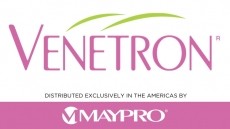Study backs isoflavones safety rep for blood clotting
not adversely affect blood clotting function, says a new study from
Brazil.
The results of the double-blinded, placebo-controlled study provides a safety fillip for isoflavones for postmenopausal women, who often take the supplements as an alternative to hormone replacement therapy (HRT).
"The present findings, although requiring confirmation by a larger trial, show that postmenopausal soy isoflavone treatment did not result in activation of the coagulation cascade… suggesting that soy isoflavone does not have biologically significant estrogenic effects on the haemostatic system," wrote lead author Danyelle Rios in the journal Nutrition .
Isoflavones are well known phytoestrogens - active substances derived from plants that have a weak estrogen-like action.
Isoflavones from soy have been shown to provide a number of health benefits, including the promotion of heart health and the maintenance of bone health in post-menopausal women.
They have also been studied for their role in cancer prevention and slowing down the ageing process in peri-menopausal women, and have proved to be a popular alternative to HRT for those wishing to control menopause symptoms without resorting to drugs.
It is the role of isoflavones as phytoestrogens that spurred the researchers from the University of Sao Paulo and the University of Ribeirao Preto to investigate the potential role of the compounds on blood health.
"Menopause is associated with elevated levels of coagulation factors such as factors VII and VIII in addition to fibrinogen.
These findings, therefore, may partly account for the increased cardiovascular complications seen in postmenopausal women," explained the researchers.
"Most studies of HRT with oestrogen alone in postmenopausal women have demonstrated the potentially adverse effect of an increase in factor VII," they added.
In order to verify the role of isoflavones on blood clotting factors, the researchers recruited 47 postmenopausal women to receive either a daily isoflavone supplement (40 mg) or a casein placebo (40 mg) for six months.
A range of biomarkers related to blood clotting, including factors VII and X, fibrinogen, were measured at the start and end of study.
The researchers report no statistically significant changes in the levels of blood variables during the study as a result of isoflavone supplementation.
They do however mention significant reductions in plasma concentrations of prothrombin fragments 1 plus 2, while both placebo and isoflavone groups showed changes in antithrombin, protein C, and free protein S levels.
Overall, they report that isoflavones are not associated with changes to coagulation factors as is commonly suggested by HRT studies with oestrogen alone. "
Our results suggest that soy isoflavone had no adverse effect on coagulation inhibitors because the changes observed did not differ significantly between groups," wrote Rios.
"No clinical study similar to ours is available in the literature for comparison or discussion of the results in relation to these parameters."
The researchers called for further research, particularly from larger clinical trials, to " definitively assess the safety and efficacy of soy isoflavone" .
Source: Nutrition (Elsevier) Published on-line ahead of print, doi:10.1016/j.nut.2007.10.009 "Effects of isoflavones on the coagulation and fibrinolytic system of postmenopausal women" Authors: D.R.A. Rios, E.T. Rodrigues, A.P.Z. Cardoso, M.B.A. Montes, S.A. Franceschini and M.R.T. Toloi












